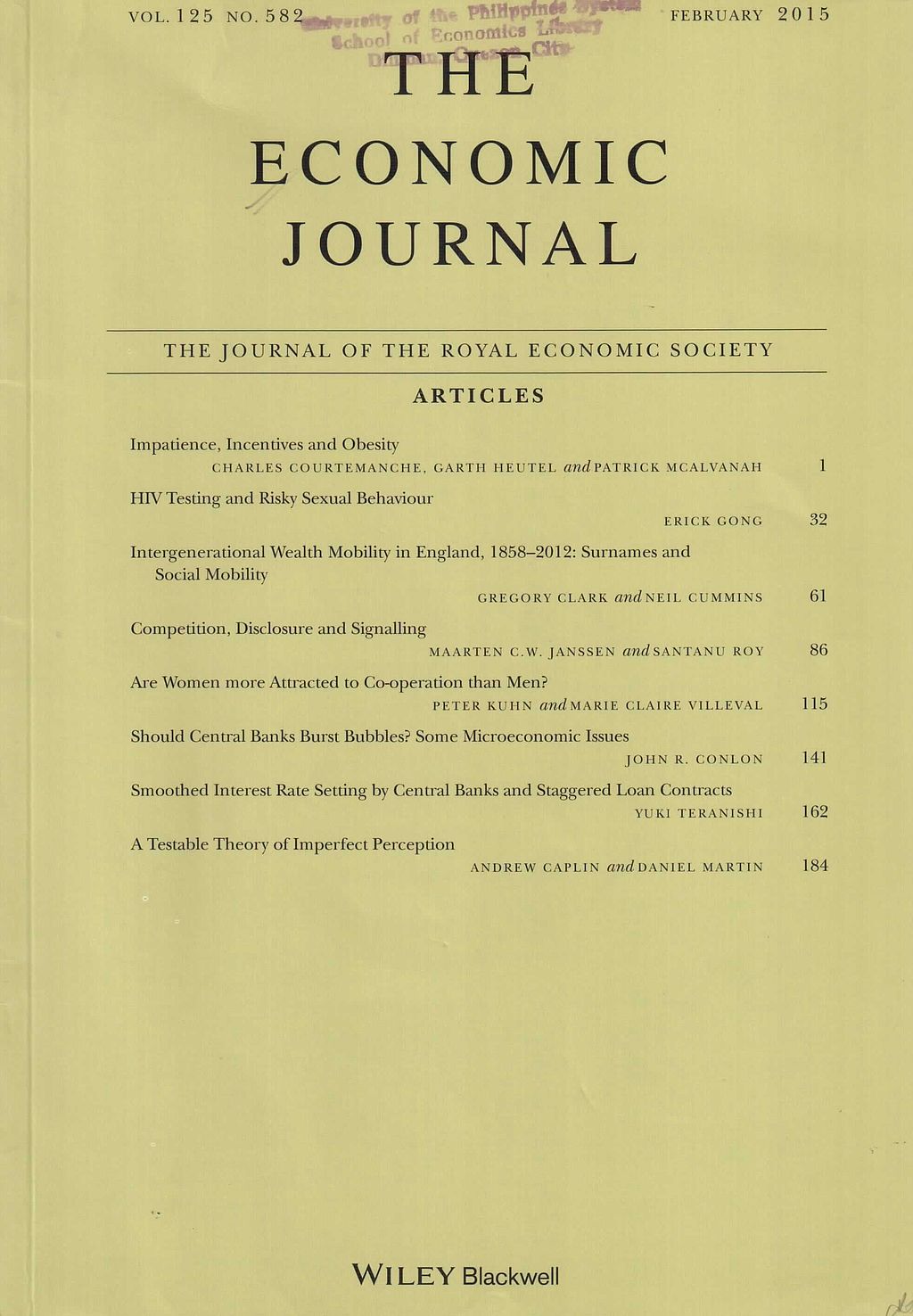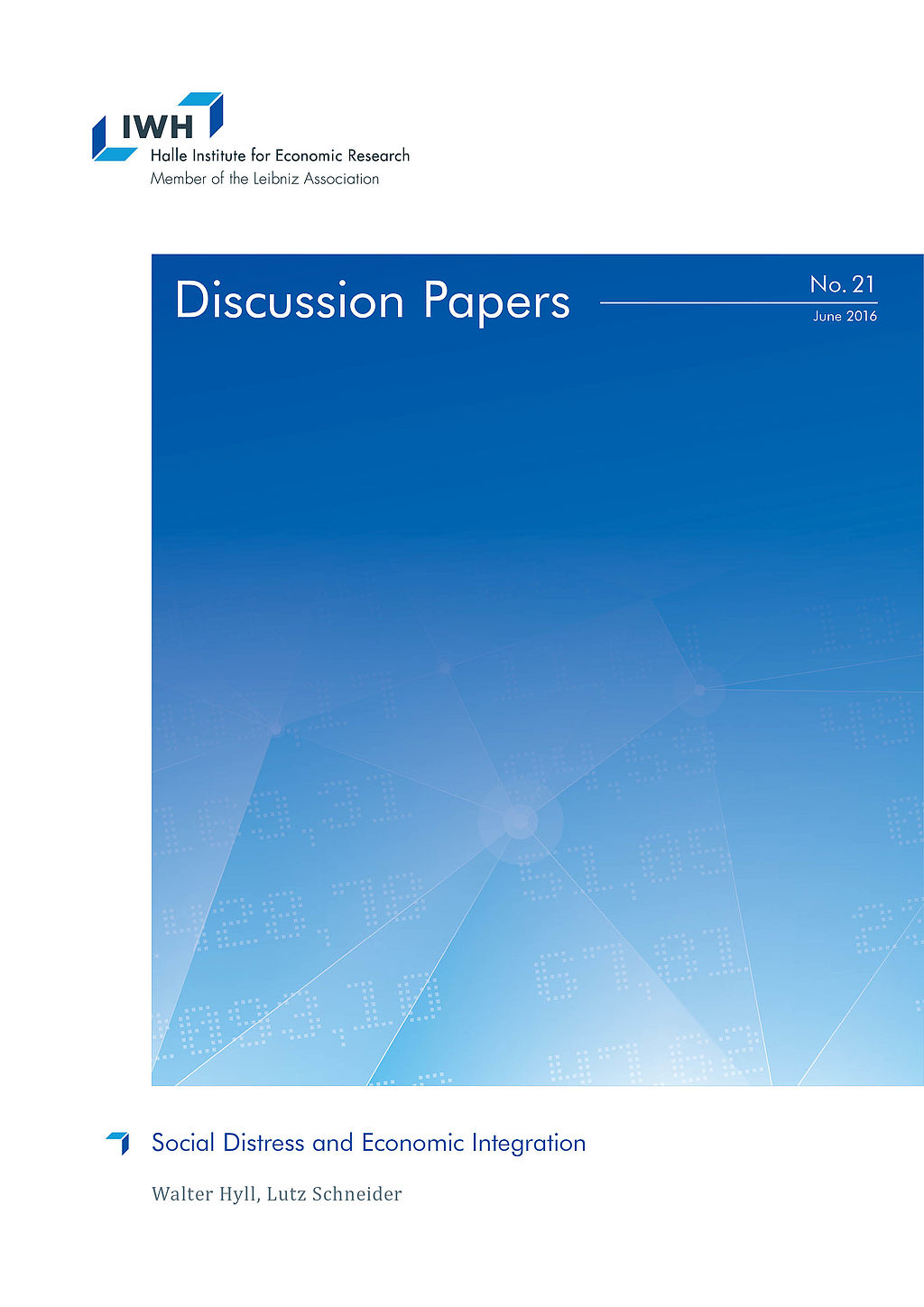Anpassungsfähigkeit und Resilienz des Finanzsystems
Diese Forschungsgruppe untersucht kritische Aspekte der Anpassungsfähigkeit und Widerstandsfähigkeit von Finanzsystemen. Sie analysiert die Auswirkungen von Naturkatastrophen auf Finanzsysteme, die Auswirkungen politischer Präferenzen für die grüne Transformation und die Bedeutung von Kultur in den Volkswirtschaften.
Forschungscluster
Finanzresilienz und RegulierungIhr Kontakt

Mitglied - Abteilung Finanzmärkte
PROJEKTE
07.2016 ‐ 12.2018
Relationship Lenders and Unorthodox Monetary Policy: Investment, Employment, and Resource Reallocation Effects
Leibniz-Gemeinschaft
We combine a number of unique and proprietary data sources to measure the impact of relationship lenders and unconventional monetary policy during and after the European sovereign debt crisis on the real economy. Establishing systematic links between different research data centers (Forschungsdatenzentren, FDZ) and central banks with detailed micro-level information on both financial and real activity is the stand-alone proposition of our proposal. The main objective is to permit the identification of causal effects, or their absence, regarding which policies were conducive to mitigate financial shocks and stimulate real economic activities, such as employment, investment, or the closure of plants.
01.2015 ‐ 12.2019
Interactions between Bank-specific Risk and Macroeconomic Performance
Deutsche Forschungsgemeinschaft (DFG)
Referierte Publikationen

Crossing Networks Competition and Design
in: Competition and Regulation in Network Industries, Nr. 4, 2006
Abstract
In the past two decades, Alternative Trading Systems (ATSs) started to compete with traditional exchanges. Our paper focuses on one such system: a Crossing Network (CN). First, we discuss the distinct institutional aspects a CN offers compared to traditional markets. Next, we present an overview of the theoretical and empirical literature analyzing their success in competing with traditional markets. Finally, we offer some prospects on the potential outcome of this competition, taking into account market design issues such as the optimal degree of transparency of CNs. We also provide a market practioner’s view on the market design of CNs.

Entry and Strategic Information Display in Credit Markets
in: Economic Journal, Nr. 513, 2006
Abstract
In many countries, lenders voluntarily provide information about their borrowers to private credit registries. A recent World Bank survey reveals that the display of a lender's own borrower information is often not reciprocated. That is, access to these registries does not require the prior provision of proprietary data. We argue that incumbent lenders release information about a portion of their profitable borrowers for strategic reasons. The reasoning is that the pool of unreleased borrowers becomes characterised by a severe adverse selection problem. This prevents the entrants from bidding for all the incumbent's profitable borrowers and reduces their scale of entry.

Investment and Internal Finance: Asymmetric Information or Managerial Discretion?
in: International Journal of Industrial Organization, Nr. 1, 2006
Abstract
This paper examines the investment-cash flow sensitivity of publicly listed firms in The Netherlands. Investment-cash flow sensitivities can be attributed to overinvestment resulting from the abuse of managerial discretion, but also to underinvestment due to information problems. The Dutch corporate governance structure presents a number of distinctive features, in particular the limited influence of shareholders, the presence of large blockholders, and the importance of bank ties. We expect that in The Netherlands, the managerial discretion problem is more important than the asymmetric information problem. We use Tobin's Q to discriminate between firms with these problems, where LOW Q firms face the managerial discretion problem and HIGH Q firms the asymmetric information problem. As hypothesized, we find substantially larger investment-cash flow sensitivity for LOW Q firms. Moreover, specifically in the LOW Q sample, we find that firms with higher (bank) debt have lower investment-cash flow sensitivity. This finding shows that leverage, and particularly bank debt, is a key disciplinary mechanism which reduces the managerial discretion problem.

Aggressive Orders and the Resiliency of a Limit Order Market
in: Review of Finance, Nr. 2, 2005
Abstract
We analyze the resiliency of a pure limit order market by investigating the limit order book (bid and ask prices, spreads, depth and duration), order flow and transaction prices in a window of best limit updates and transactions around aggressive orders (orders that move prices). We find strong persistence in the submission of aggressive orders. Aggressive orders take place when spreads and depths are relatively low, and they induce bid and ask prices to be persistently different after the shock. Depth and spread remain also higher than just before the order, but do return to their initial level within 20 best limit updates after the shock. Relative to the sample average, depths stay around their mean before and after aggressive orders, whereas spreads return to their mean after about twenty best limit updates. The initial price impact of the aggressive order is partly reversed in the subsequent transactions. However, the aggressive order produces a long-term effect as prices show a tendency to return slowly to the price of the aggressive order.

Distance, Lending Relationships, and Competition
in: Journal of Finance, Nr. 1, 2005
Abstract
We study the effect on loan conditions of geographical distance between firms, the lending bank, and all other banks in the vicinity. For our study, we employ detailed contract information from more than 15,000 bank loans to small firms comprising the entire loan portfolio of a large Belgian bank. We report the first comprehensive evidence on the occurrence of spatial price discrimination in bank lending. Loan rates decrease with the distance between the firm and the lending bank and increase with the distance between the firm and competing banks. Transportation costs cause the spatial price discrimination we observe.
Arbeitspapiere

Corporate Governance Structures and Financial Constraints in Multinational Enterprises – An Analysis in Selected European Transition Economies on the Basis of the IWH FDI Micro Database 2013 –
in: IWH Discussion Papers, Nr. 3, 2015
Abstract
In our analysis, we consider the distribution of decision power over financing and investment between MNEs’ headquarters and foreign subsidiaries and its influence on the foreign affiliates’ financial restrictions. Our research results show that headquarters of multinational enterprises have not (yet) moved much decision power to their foreign subsidiaries at all. We use data from the IWH FDI Micro Database which contains information on corporate governance structures and financial restrictions of 609 enterprises with a foreign investor in Hungary, Poland, the Czech Republic, Slovakia, Romania and East Germany. We match data from Bureau van Dijk’s AMADEUS database on financial characteristics. We find that a high concentration of decision power within the MNE’s headquarter implicates high financial restrictions within the subsidiary. Square term results show, however, that the effect of financial constraints within the subsidiary decreases and finally turns insignificant when decision power moves from headquarter to subsidiary. Thus, economic policy should encourage foreign investors in the case of foreign acquisition of local enterprises to leave decision power within the enterprise and in the case of Greenfield investment to provide the newly established subsidiaries with as much power over corporate governance structures as possible.


















